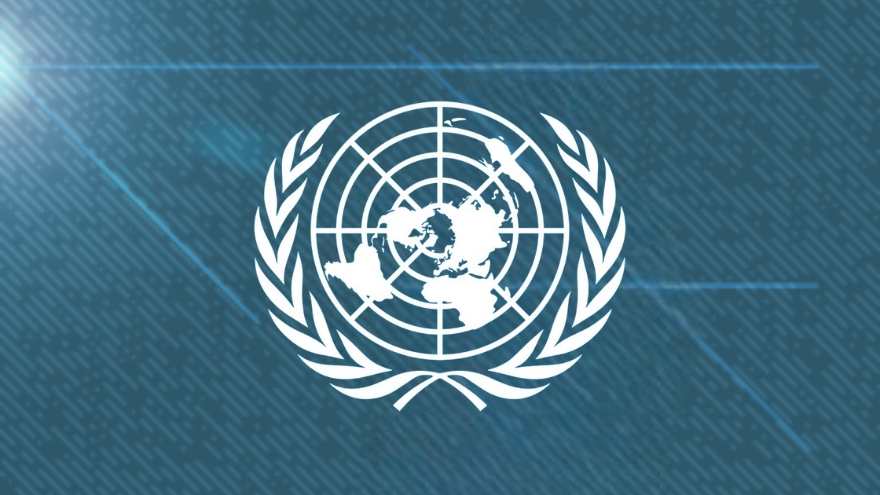The operation was commissioned by Israel’s Diaspora Affairs Ministry, but was carried out by a private Israeli political marketing and business intelligence firm called STOIC, amid fears that the government’s involvement would embroil Israel in a crisis, according to Tel-Aviv-based Israeli newspaper Haaretz. First reported by the publication in March, the influence operation used hundreds of fake social media accounts and fake “news websites” to promote pro-Israel, anti-Palestinian content, as well as disinformation about antisemitism on American campuses. The accounts targeted U.S. lawmakers, particularly black Democrats, with posts prodding them to continue funding the Israeli military. U.S. House Rep. Hakeem Jeffries and Sen. Raphael Warnock have been named as two of the prominent lawmakers targeted in the influence scheme.The Israeli government orchestrated a large-scale influence operation targeting lawmakers and young progressives in the U.S. and Canada in a bid to sway public opinion and bolster support for its war in Gaza, according to officials involved in the campaign and documents tied to the effort.
AIPAC targets Black lawmakers critical of Israel. Vowed to get them out of office.
The government of Israel ran a pro-Israel social media campaign with fake bots --trying to influence Black lawmakers.
But people keep saying this issue has nothing to do with race in America.
— Karen Attiah (@KarenAttiah) June 5, 2024
The ministry designated $2 million for the operation, which began in October and still remains active on social media platform X.
Open AI’s artificial intelligence-powered chatbot ChatGPT was used to generate many of the social media posts. The fake “news sites” copied some reports from international news sites and also generated original content comprised of pro-Israel articles. The operation also spread malicious content about the United Nations Relief and Works Agency for Palestine Refugees (UNRWA).
The Israeli government’s connection to the operation has been verified by multiple news outlets, including Haaretz and The New York Times, which spoke with four current and former members of the Diaspora Affairs Ministry and obtained related documents.
Foreign interference? In an election year? Forcing an unpopular bill through Congress that stole about $100 billion from your taxes to squander on fruitless unwinnable wars? Business as usual. pic.twitter.com/h547aljiyE “The secretive campaign signals the lengths Israel was willing to go to sway American opinion on the war in Gaza,” the Times reported. According to Israeli officials who spoke with the Times, the operation began just weeks into the war in October, with Israeli tech companies receiving messages inviting them to urgent meetings to become “digital soldiers” for Israel during the conflict. Some of the messages were sent from Israeli government officials. Meta/Facebook/Instagram Threat Assessment Last week, Meta — parent company of Facebook and Instagram — said in it’s quarterly Adversarial Threat Report that it had discovered and disrupted the operation, which resulted in a cease-and-desist letter to STOIC and the removal of its presence from all platforms. Though the Israeli operation “demonstrated a relative discipline in maintaining OpSec [operational security], including by leveraging North American proxy infrastructure to anonymize its activity,” Meta was able to disrupt the network and find “links to STOIC,” the company said. “This cross-internet operation targeted many services, including ours, X (formerly Twitter), and YouTube, and operated several distinctly branded websites focused on the Israel-Hamas war and Middle Eastern politics,” Meta said. “This network’s accounts posed as locals in the countries they targeted, including as Jewish students, African Americans and ‘concerned’ citizens,” Meta added. “They posted primarily in English about the Israel-Hamas war, including calls for the release of hostages; praise for Israel’s military actions; criticism of campus antisemitism, the United Nations Relief and Works Agency (UNRWA), and Muslims claiming that ‘radical Islam’ poses a threat to liberal values in Canada. Meta said it removed 510 Facebook accounts, 11 Pages, one Group, and 32 Instagram accounts used by the Israeli influence campaign. OpenAI/ChatGPT OpenAI dubbed the Israeli operation “Zeno Zeno.” The company says Israelis used its AI technology to generate fake personas and biographies meant to “stand in for real people on social media” and to post anti-Islamic messages. “It suggests that some of our biggest fears about A.I.-enabled influence operations and A.I.-enabled disinformation have not yet materialized,” Jack Stubbs, the chief intelligence officer of Graphika, which tracks the manipulation of social media services and reviewed OpenAI’s findings, told the Times. The Good Samaritan FakeReporter, an Israeli misinformation watchdog, first discovered the operation in March. The operation’s strategy “involves creating the perception of widespread American support for Israel and its actions since October 7th,” the watchdog stated in an updated June 5 report on the influence operation. According to the report, what began as a pro-Israeli influence network targeting mostly U.S. lawmakers “developed into a large-scale effort to target various groups” using “Islamaphobic and anti-immigrant content.” The new report also shows links shared by the network led to a website called The Good Samaritan, which featues an interactive U.S. map, where nearly all major universities are marked with green and red dots. Green dots indicate that the university is considered “safe” for Jewish students, while red dots suggest it’s not. The Good Samaritan website “coincided with the onset of pro-Palestinian protests at universities across the United States,” the report states. Clicking on the dots opens a separate window displaying statistics on supposed levels of hate speech and hate crimes. Each university also has a dedicated page with general information (i.e., the president’s name, student enrollment numbers), along with the university’s stance on the war in Gaza. The page “also displays a graph purporting to show an increase in antisemitism on campus” and a list identifying alleged “hate groups” on campus. Israeli Denials According to Haaretz and the Times, the Diaspora Affairs Ministry denies involvement, but a source within the ministry said that the ministry funds both official and unofficial operations. Various Israeli officials said that the war in Gaza exposed a “grave failure” in Israeli public relations, leaving the country unable to counter the flood of pro-Palestinian messages on social media, Haaretz reported. So, a decision was made to create fake online accounts that closely resemble real people to manipulate public opinion. STOIC did not respond to requests for comment.
— Edward Snowden (@Snowden) June 5, 2024

